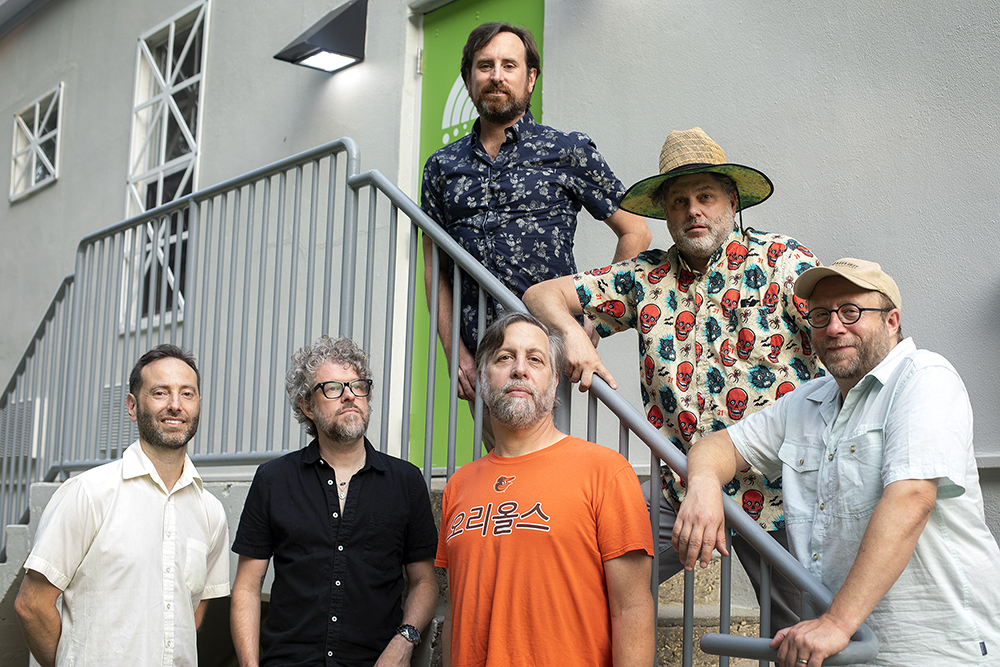I am proud to say I wrote the first newspaper story about Big Ass Truck 30 years ago. And I remember being worried whether I could get the word “ass” in the newspaper.
Apparently, there wasn’t any problem. The story about the psychedelic/funk/rock/hip-hop band appeared in my Listen Up column when I was at The Commercial Appeal.
“Before we did our first Listen Up, I sent you a cake — a personalized cake,” says Steve Selvidge, the band’s lead guitarist and co-lead singer with Robby Grant.
Big Ass Truck will celebrate its 30th anniversary with its “All You Can Handle Birthday Bash” at 8 p.m., October 14th, at Minglewood Hall.
The band also will release All You Can Handle, a double vinyl retrospective, the same day. “We couldn’t call it Greatest Hits because we don’t have any hits.”
Selvidge remembers how the band’s name originated. “I was driving home from class at Memphis State one day, and this giant truck came blazing past me.”
The guy who was with him said, “Fuck a big truck.” That “notion of a big ass truck” was always poking around in his head, Selvidge says.
Before Big Ass Truck, Selvidge and Grant were in Fester, but they were “just making noise and improvising.”
But Jared McStay from the Simpletones liked Fester and wanted the band to open for them in an upcoming show at the Antenna Club. Selvidge told him Fester wasn’t going anywhere, but he’d put a group together to play.
The original Big Ass Truck lineup also included Robert Barnett on drums, Joe Boone on bass, Alex Greene (now Memphis Flyer music editor) on keyboards, DJ Colin Butler on turntables, and percussion player Drew Conner.
Antenna’s owner asked Selvidge the name of their new band. “I hadn’t a name. I remembered that afternoon of a truck going by me. I said, ‘I don’t know. Call it Big Ass Truck.’”
The Antenna gig “went down like crazy. As I remember, Andria Lisle was there that night and asked me if I wanted to do a seven inch.”
They recorded the seven inch, which was on the Sugar Ditch label, at Sam Phillips Recording Studio.
Shortly after that Antenna gig, Big Ass Truck was “tapped the hottest band in Memphis by the [Memphis] Flyer.”
“It wasn’t too long before we were headlining the New Daisy. Which was our first year. It was amazing because most of us had been plugging away for years in other bands. Just barely getting anything going. And so it was really fun and cool to all of us that suddenly people were coming to our shows. And people were knowing who we were.”
Stephan Crump, who subbed one summer for vacationing Boone, appeared on their self-titled CD, which was recorded at Kiva studio.
Big Ass Truck began getting bookings in Atlanta and Athens, Georgia. “The shows kept getting bigger and bigger.”
Ross Rice produced Kent, which they recorded at Ardent Studios after being signed to Upstart Records, a division of Rounder Records.
Ardent was a big deal. “I grew up there with my dad [late singer-songwriter Sid Selvidge]. This is the top in Memphis. This is the legend.
“I dyed my hair dark blue. I’m running around with blue hair and no shirt on at Ardent. I was living the dream, man.”
Big Ass Truck began to slow down after Boone dropped out of the band. They continued to play, but, Selvidge says, “It turned into us chasing the brass ring. It lost a lot of that kind of innocence. It was still a blast, but it sort of changed after that. Then we just continued on until 2001.”
They played their last show at Young Avenue Deli. “It wasn’t like our ‘final show’ or any of that. We didn’t milk it.”
They played other reunion shows with other people over the years, but “the core members — Steve, Colin, Robert, and Robby — never left.”
The high point for Big Ass Truck was when the band won the NARAS Premier Players Band of the Year award in the mid-’90s, Selvidge says.
Big Ass Truck was their “entry point” as professional musicians, Selvidge says. “I think now about a lot of fun times on the road. I think about a lot of hard times on the road. Stuff you deal with. But we were tight, man. And it was a lot of laughs.”
